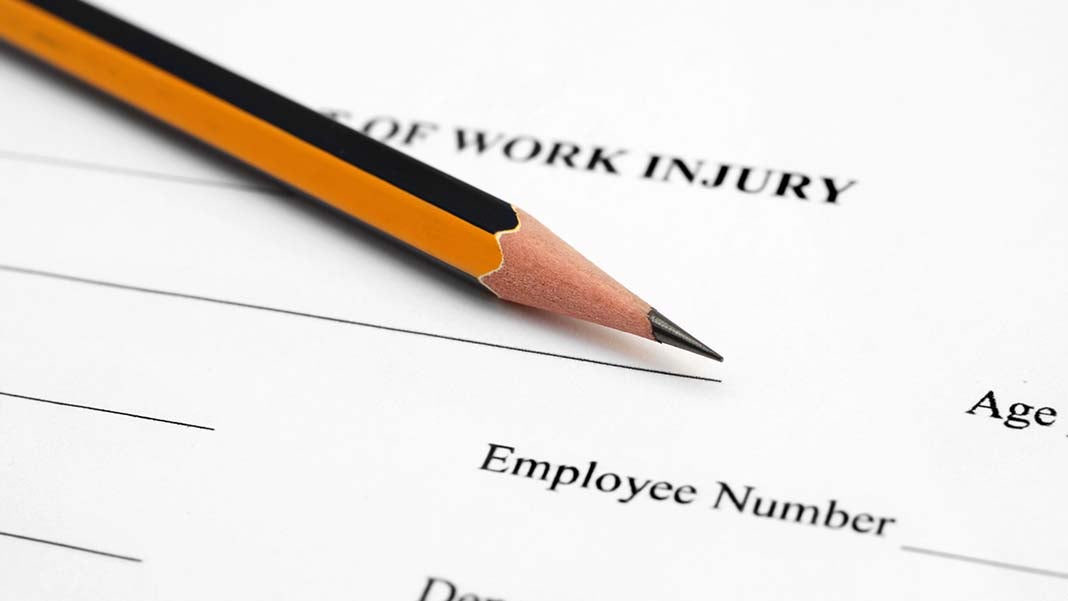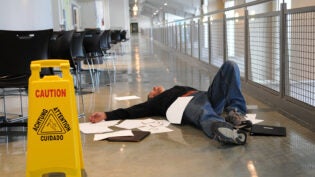3 Alarming Consequences of Workplace Accidents and How to Safeguard Your Small Business
By: Jared Carrizales

When it comes to workplace safety, many small businesses forgo considering safety as a priority in their business in favor of saving money and/or saving time. With no HR or legal department, small business can’t pack the same punch as large corporations when it comes to safeguarding their business against the consequences of workplace accidents. Or can they?
Knowing the potential consequences of workplace accidents essentially acts as a roadmap to protecting your business against them. Here we break down the 3 main consequences that you need to know about and the best ways you can avoid them.
Direct Costs
When small business owners consider the consequences of a workplace accident, the associated direct costs are probably the first, and often only, thing they think of. And, perhaps rightly so! Direct costs for personal injury claim come cost businesses throughout the US over close to $60 billion every year!
When an employee who has been injured files a personal injury claim an employer may be liable for direct costs, including a financial amount paid to their employee to cover medical bills and other costs associated with their injury. Direct costs can also include legal costs accrued during the proceedings.
Indirect Costs
Indirect costs are a less-considered but no less impactful consequence of an injury at work. Even if an employee does not file a personal injury claim, you may still have indirect costs to consider. From time off work to corrective measures and everything in between, indirect costs of workplace accidents can often far outweigh direct costs.
Essentially, indirect costs account for any financial cost to your business as a result of an accident in excess of any costs associated with a personal injury claim itself. Since it is not always tangible, and no lump sum amount is presented, many businesses forget that things like loss of productivity and additional staff training can financially impact their business in the same way as direct costs.
Criminal Action
In some cases, especially in the case of an employer’s negligence directly resulting in a workplace injury, criminal action may be brought against you. Although more uncommon, it has been known for employers to serve prison time following an employee’s serious injury or death.
How to Avoid Accidents in Your Workplace
So many employers have a lackadaisical approach to workplace safety, despite knowing the potential pitfalls that come with an employee accident while under their duty of care. For small business owners especially, the cost of mitigating a potential accident seems to overshadow the risk. But studies actually show that for every dollar spent on creating a safer working environment, employers save an average of $10 in direct and indirect costs associated with a personal injury claim.
Taking out the appropriate insurance policies is an essential step you must take to make sure workplace injuries don’t bankrupt you, but this doesn’t help your business minimize the risk of accidents. Here are three simple ways you can protect yourself and your business from the potentially costly consequences of workplace injuries.
Create a Safe Work Environment
The first and most obvious step is to create a safe environment for your employees. Now, before you go filing down sharp corners and wrapping your employees in bubble wrap, it’s important that you know that the easiest way to do this is by having a conversation and committing to ongoing safety training with your staff.
Getting your employees on the same page about your company’s policies when it comes to safety, and empowering them to look after their own ensures that they know safety is a priority to you, and hence it should be to them too.
Slip and fall personal injury claims account for one-third of claims as a result of workplace accidents, so outlining the importance of good housekeeping in order to avoid them is paramount. Furthermore, you must ensure your employees know the safest ways to conduct their jobs and help them understand why they need to be vigilant around the workplace.
That said, if there are obvious hazards that may result in injuries that can’t be avoided by vigilance and procedure alone, make sure you fix them! If your employees are exposed to workplace hazards, such as uneven walkways or ill-maintained environments, then repair them. If employees are at risk of coming into contact with hazards which can be easily covered, cover them! If your employees are taking a route around your workplace which could potentially put them at risk, change it! You get the picture…
Each workplace is unique, and it is your responsibility as a business owner to identify the potential risks which your workplace poses to your employees and mitigate them as far as possible.
Maintain your equipment
So many workplace injuries occur as a result of ill-maintained machinery or vehicles. In addition to the possibility of the machine itself inflicting an injury on your employee, there’s also the risk of injury occurring while an employee attempts to fix the item too.
It may seem like a costly exercise but performing regular maintenance will ensure your business not only reduces injury risk, but is protected from potential legal action should the worst occur.
Provide Adequate Protection
While the type of protective equipment may be obvious for some industries, it can’t be said for all. That said, it doesn’t mean that it is not needed in these seemingly ‘low-risk’ sectors.
It may seem obvious that construction workers and others working in ‘dangerous’ environment may be required to wear specific footwear, harnesses or protective headwear, but those working in other industries may need equipment that’ll help them do their jobs without injury too.
The provision of an ergonomic mouse, for example, may assist those sitting at computers, performing micro-movements, and minimize the risk of RSI. Nurses and other healthcare workers’ highest rate of compensation claims results from back injuries, an issue which could potentially be mitigated by equipment which would minimize the stress injured to this area.
When injury does happen
Unfortunately, all workplaces are susceptible to workplace accidents, even if they have put a multitude of measures in place to avoid them. So, when they do, it’s important you’re prepared.
Your employee’s wellbeing is paramount so in the immediate aftermath of an accident, make sure that your first priority is seeking medical attention for them. If your employee has sustained injuries which makes them eligible for a personal injury claim, make sure that you work with their attorney to settle the claim as swiftly as possible. You may wish to seek advice from your own attorney too.
Finally, fix the problem! If the workplace injury has identified a hazard in your workplace, take steps to fix it immediately. If the accident occurred as a result of something that cannot be fixed, per se, make sure your staff is aware of the circumstances, so they don’t find themselves in the same position.
4227 Views












